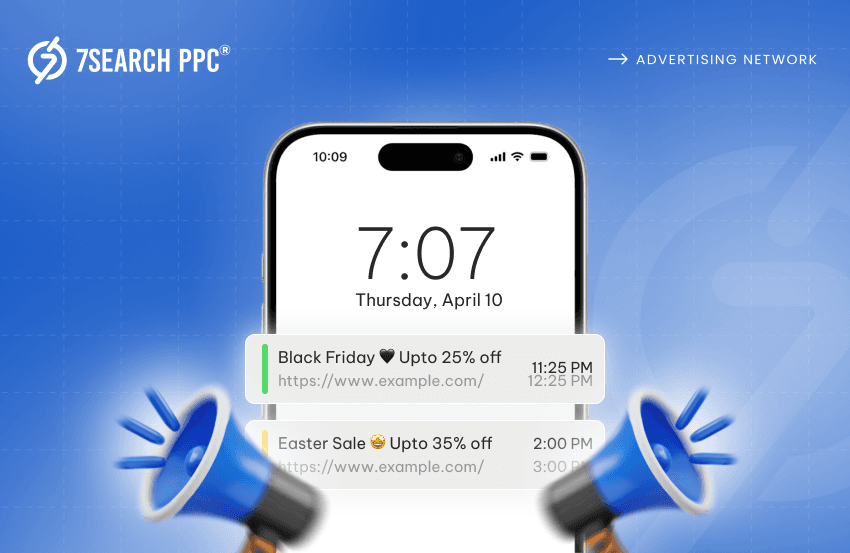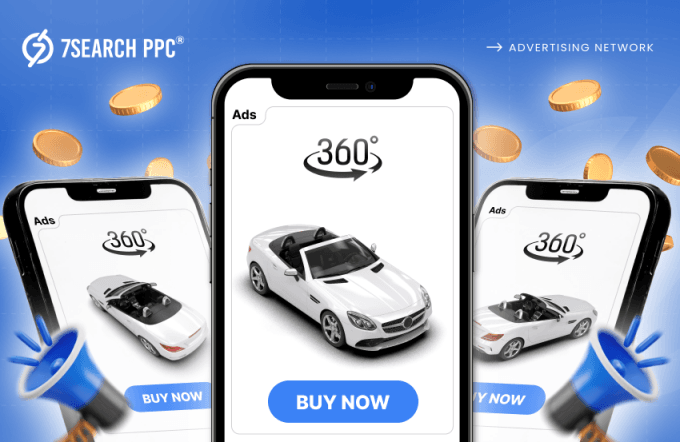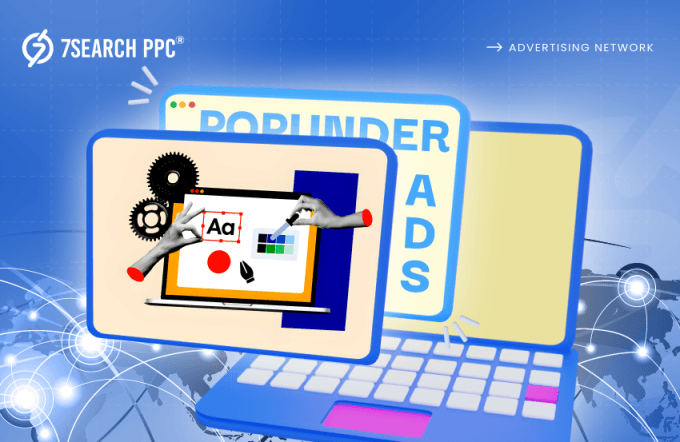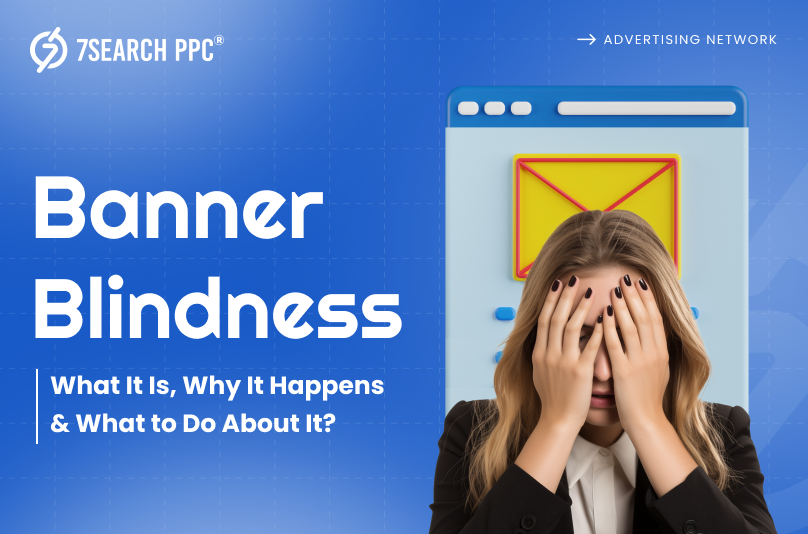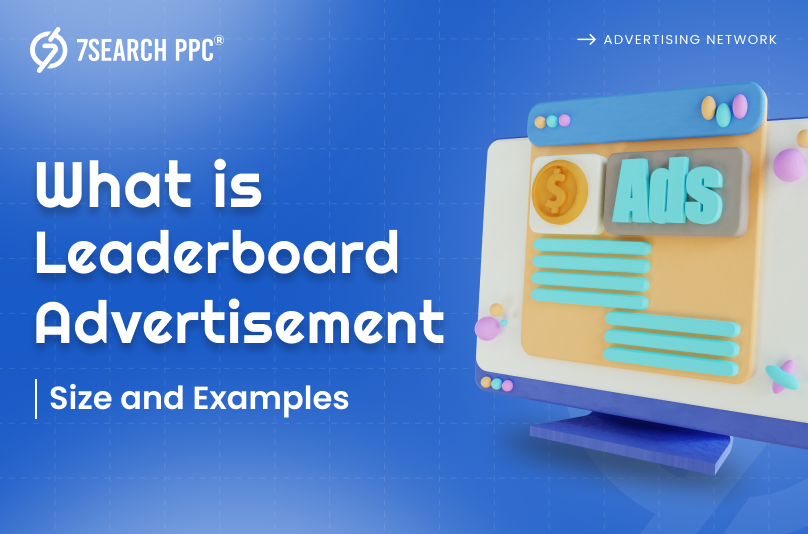Imagine an ad that drops directly into someone’s calendar just as they are about to begin their daily routines. It blends in between schedule checks and task allocations, acting as a gentle reminder from brands. We call them Calender Push Ads.
This new ad format has been gaining immense popularity lately. But unlike all other ad formats that were easily adopted by marketers, this one is facing quite a few controversies. Some love it because it engages iOS users, contributing to high-quality calendar push traffic. Others think of it as spam.
Start Driving Traffic with Push Ads!
But what’s the real deal? Are calendar push ads really all that effective? Let’s cover everything about them in this blog.
Introduction to iOS Calendar Push Traffic
iOS Calendar Push Traffic refers to the traffic generated through push notification ads sent via the calendar app on iOS devices.
These ads, called calendar push ads, appear as scheduled events, typically including a title, link, and description. They don’t require much effort as they lack any form of image creative, only the consent of the person receiving them which is obviously the hardest part.
Identifying them is pretty easy. They can be sitting on your calendar, looking like:
Greatest game of the season is around the corner! Bet $10, gain $100.
or something like;
Pending Alert! Your package is held at [city] post office.
Although any vertical can utilize them, the highest calendar push traffic is usually seen in the gambling, sweepstakes, crypto, dating and adult, VPN, and antivirus sectors.
How Does it Work?
Calendar push ads work on subscriptions. Users need to opt in to receive promotions from the brand, which are often sent via email invitations or website popups. Once done, ads will appear as scheduled events in the calendars. A reasonable feature is that users are free to unsubscribe from receiving further ads at any time.
How Does it Appear?
Calendar push ads don’t look much different from the usual in-page push ads. Except for the image icon, which is absent in calendar ads, everything is the same. You can find:
- Title: The title is the headline part of the ad, often highlighted in bold. Most advertisers keep it short and to the point, within 5 to 10 words. The purpose is to convey the product or service’s primary feature to attract users’ attention and get them to engage.
- Text: Text is optional, but is often seen as an extension to the main headline. Think of this as the description you can add about your product or service. It can be a bonus offer, a discount, or a one-sentence review.
- URL: URLs contain a link to your landing page. Their purpose is to redirect users to your website or app for further conversions. Optimize your landing page and URL well to make them compatible with your ad.
Why it Works- The Pros
You’ve probably heard praises about calendar push ads from fellow advertisers. And understandably so- because they provide plenty of benefits. Here’s what makes them work:
- More visibility: Banner blindness is reaching its peak as the web is already filled with ads. But when you deliver them directly to mobile devices, visibility and engagement will naturally increase.
- No images required: Calendar ads don’t require images. All you need to do is come up with a catchy headline and ad copy, making it very convenient for anyone to create these ads. Even beginners and rookies with minimal knowledge of design can do it.
- High-quality traffic: These ads target a very high-quality audience of iOS users, who are often assumed to have higher incomes. Since users have opted in to receive ads themselves, the traffic will include relevant audiences only.
- No ad block issue: Ad blockers are a serious issue when it comes to advertising. Calendar ads can bypass any such ad blockers as they are delivered directly to mobile devices.
- Perfect timing: Calendar ads are known for their quick launch and prompt delivery. They can be triggered right before an event, a flash sale, or a time-sensitive offer.
- Personalized approach: When ads appear as a user’s scheduled event, it gives it a solid personalized touch. You can make people feel as if the ad was specifically meant for them.
Why It Doesn’t Work- The Cons
You saw this one coming. Each ad format has its cons, and calendar ads are no exception. Here’s why they may not work to attract relevant calendar push traffic.
Requires subscription
Users are always skeptical about subscribing to anything, especially ads, on the internet. Since you cannot target these ads without obtaining permission from users, it might not work. Subscriptions are likely to be low, and calendar push traffic might even be negligible.
Users can unsubscribe anytime
If users feel that your ads are spammy or don’t provide any value to them, they can choose to unsubscribe at any time. This will remove the only form of connection you may have with them.
Often appear as spammy
Since the web is already full of ads, nobody likes receiving ads on their mobile devices, too. This can make calendar ads look extremely spammy and might even dim your brand reputation in the long term.
Limited customizations
Calendar push ads restrict you to simple text and URLs. There is no scope for any rich media (images and videos), which might lead to lower engagement.
No real-time optimization
Once a scheduled event ad is added to a user’s calendar, it cannot be optimized in real-time. Heading, text, and URL remain fixed, and you have to start a new campaign all over again for changes.
Limits Targeting
A major drawback is that these ads target iOS and macOS users only. The Android user population, which is a lot when it comes to mobile advertising, is completely missed.
A Better Alternative: In-Page Push Ads
While calendar push ads are a revolutionary new ad format, they still have a long way to go. So, if you want to stay on the safer side and not experiment much, we have an alternative for you: In-Page Push Ads.
In-Page Push Ads are advertisements that show up as notifications directly on websites instead of mobile devices. They have the typical look of a notification (icon, headline, description, and CTA) and often appear at the top and bottom corners of the webpage.
We have conducted a thorough comparison to help you understand the nuances better.
| Basis | Calendar Push Ads | In-Page Push Ads |
| Targeting | Calendar push ads have limited scope and can only be targeted to iOS and macOS users on their mobile devices. | In-page push ads have a wider scope and can be targeted towards Android, iOS, macOS, and other operating systems across multiple GEOs and websites. |
| Subscription | Users need to subscribe or opt-in to receive these ads. They can unsubscribe at any time as well. | Requires no such subscription and can be delivered as easily as any other display ad format. |
| Media | Are completely text-based, with no media (image, icon, or video) attached to them. This might dull the visibility and engagement with the ads. | Can incorporate media elements like small images and banners, which enhance the visibility and make users want to engage. |
| Traffic Quality | Includes high-quality and relevant calendar push traffic of iOS users. However, it can be low in quantity. | Includes high-quantity mixed traffic from a diverse group of users. |
| Analytics | Minimal analytics, limited to time insights and CTR. | Provides real-time tracking, detailed performance insights, and optimization opportunities. |
| Ad Fatigue | Escapes banner blindness but does have a high potential for being ignored as ‘just another calendar alert.’ | Cannot escape banner blindness, but it can attract attention through relevant content and unpredictable placements. |
| Ease of Setup | Requires calendar integration and permission to add events on the part of the user. | Simple integration with online websites and no opt-in process, making the advertiser’s work easier. |
A Close Reading
As you can tell, both calendar ads and in-page push ads have their pros and cons. When one excels in quality traffic, the other excels in engagement.
Speaking on broad terms, calendar push traffic is still fairly new and needs to prove itself to the world. On the other hand, web push advertising has already proven itself to the world, reaching a forecasted ad spending of US $3.08 billion in 2025.
But that isn’t to say that calendar ads aren’t worth a shot. The right strategies and constant experimentation are bound to result in high-quality calendar push traffic. So, if you have the time and money in your hands, it’s worth giving them a shot.
If that’s not a viable option, then 7Search PPC has five other ad formats that you can explore. Among them, our in-page push ads are a top choice for advertisers, known for their easy setup and high engagement potential. With our ad network, you can get the most out of your advertising budget while reaching a wider, more responsive audience.
Sign Up to Launch Your Ad Campaigns!
Conclusion
In the end, we can say that calendar push ads will be the next revolution when it comes to online ad formats. But there’s still time to spare until they become a popular, more reasonable choice. If you’re sure about your audience and know just what they need, then definitely go for it. Calendar push traffic is still in the making, but if you figure out the right strategy, then it can be a boon for you.
But if you have your doubts, then it is better to be on the safe side and stick to other conventional means. Always keep an eye out because you never know which ad format might just be the next game-changer!
Frequently Asked Questions (FAQs)
What are calendar push ads?
Ans. Calendar push ads are a type of ad format that appears on iOS devices as scheduled events. Users receive them on their calendar apps only when they choose to opt in
What is calendar push traffic?
Ans. Calendar push traffic refers to the traffic generated by calendar ads. This is typically good-quality relevant traffic from iOS users
Are calendar ads effective?
Ans. Yes, these ads can prove effective if you are looking for high-quality calendar push traffic and better visibility. However, they can often be seen as ‘spammy’ and don’t have much scope for engaging media
Is there a better alternative for calendar push traffic?
Ans. In-page push traffic is a better alternative to calendar push traffic. The ads don’t require any opt-in and have a wider targeting and media potential.
Calendar Push ads vs. In-Page Push ads, which is better?
Ans. While it depends on your target acne and campaign objective, in general, in-page push ads are considered more effective because of their higher engagement, flexibility, and visibility.

